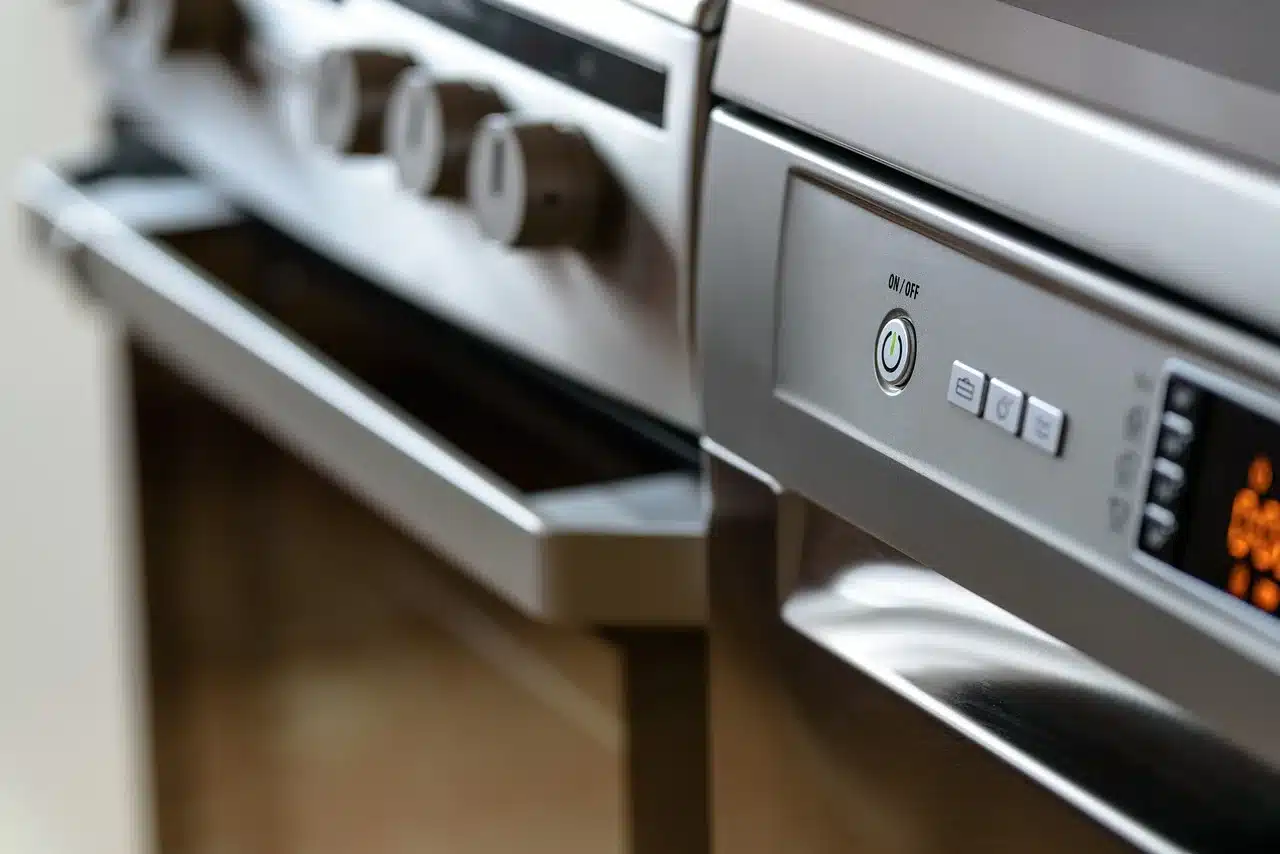White goods are a fundamental part of modern living, encompassing a range of large home appliances that are typically finished in white enamel. These appliances are essential for everyday tasks, from cooking and cleaning to food preservation. Understanding the different types of white goods, their features, and how to maintain them is key to ensuring they remain reliable and efficient in the home.
Types of White Goods
Major types of white Goods are described below:
Refrigerators
Refrigerators are a cornerstone of any kitchen, keeping food fresh and safe to eat. They come in various styles, including top-freezer, bottom-freezer, side-by-side, and French door models, each offering different storage configurations and features like ice makers and water dispensers.
Washing Machines
Washing machines have revolutionized laundry care, offering efficient ways to clean clothes. Front-loading and top-loading machines are the two main types, with front loaders being more water and energy-efficient, while top loaders are typically more affordable and easier to load.
Dishwashers
Dishwashers are designed to make dishwashing a breeze, saving time and effort. They come in various sizes and configurations to suit different kitchen layouts and household needs, with features like adjustable racks, multiple wash cycles, and energy-efficient settings.
Ovens and Cooktops
Ovens and cooktops are essential for cooking and baking. They can be standalone units or part of a range, offering various cooking methods such as conventional baking, convection baking, and induction cooking, each with its advantages and uses.
Freezers
Freezers are used for long-term food storage, allowing households to stock up on frozen goods and preserve leftovers. They come in upright and chest freezer configurations, with features like adjustable temperature settings and frost-free operation for added convenience.
Importance of White Goods in Our Daily Life
Convenience and Timesaving
White goods have revolutionized the way we manage household chores. Refrigerators preserve food, reducing the frequency of grocery shopping and minimizing food waste.
Washing machines and dishwashers save hours of manual labor, allowing us to spend more time with family or pursue other activities. These appliances have become so integrated into our routines that their absence would significantly disrupt our daily lives.
Health and Hygiene
Many white goods contribute directly to our health and hygiene. Refrigerators keep perishable foods fresh, preventing the growth of harmful bacteria and reducing the risk of foodborne illnesses. Washing machines and dishwashers ensure that clothes and dishes are thoroughly cleaned, maintaining a clean and healthy living environment. These appliances are especially crucial for households with young children, elderly members, or individuals with health conditions that require strict hygiene standards.
Energy Efficiency and Environmental Impact
The importance of white goods goes beyond personal convenience and health; they also have a significant impact on the environment. Modern appliances are designed with energy efficiency in mind, reducing electricity and water consumption. Energy-efficient refrigerators, for example, consume less power and contribute to lower greenhouse gas emissions.
Additionally, many white goods are now manufactured using eco-friendly materials and are designed for easier recycling at the end of their lifespan, minimizing their impact on the environment.
Quality of Life and Economic Impact
White goods enhance our overall quality of life by simplifying tasks and reducing the burden of household chores. This, in turn, can lead to improved mental well-being and reduced stress levels. Moreover, the widespread use of white goods has led to the creation of jobs in manufacturing, sales, and servicing, contributing to economic growth and stability.
The importance of white goods in our daily lives cannot be overstated. These appliances have become essential for modern living, providing convenience, improving health and hygiene, and reducing our environmental footprint. As technology continues to advance, we can expect white goods to become even more efficient, reliable, and integrated into our daily routines, further enhancing our quality of life.
Buying White Goods
When buying white goods, several factors should be considered:
Size: Consider the available space in your home and choose appliances that fit comfortably.
Energy Efficiency: Look for appliances with high Energy Star ratings to save on utility bills.
Features: Consider the features you need, such as special wash cycles in a washing machine or adjustable shelves in a refrigerator.
Budget: Set a budget and compare prices from different brands to find the best value for money.
Warranty: Check the warranty terms to ensure your appliances are covered for any potential issues.
Maintaining White Goods
Cleaning: Regularly clean appliances inside and out to prevent dirt and grime buildup.
Maintenance Checks: Schedule regular maintenance checks to identify and address any issues early on.
Proper Use: Follow the manufacturer’s instructions for optimal use and avoid overloading or misuse.
Repairs: Promptly address any repairs or malfunctions to prevent further damage.
Transportation: White goods need extra care during transportation or shifting. It is essential to follow the instructions advised by the manufacturer.
Final words
White goods play a vital role in modern households, offering convenience and efficiency in daily tasks. Understanding the different types, buying considerations, and maintenance tips can help homeowners make informed decisions and ensure their white goods remain reliable and functional for years to come.








